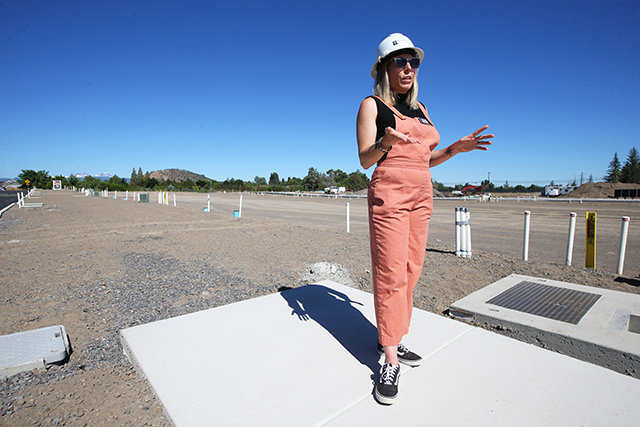Bend schools’ unique grading style could point to future for district
Published 2:00 pm Saturday, March 6, 2021

- In this January 2019 file photo, students work on a project in a computer science class at Cascade Middle School in Bend.
At Cascade Middle School, homework isn’t graded. Extra credit isn’t offered. And students don’t get their grades inflated just because they’re behaving well.
Cascade staff say their unique grading system rewards students for actually learning concepts and improving throughout the school year, rather than “playing school” correctly.
Trending
“We’re here to develop a genuine love for learning, and develop lifelong learners,” said Dave McKae, a math teacher at Cascade Middle School. “I think this system helps develop that mindset.”
Bend-La Pine Schools recently began an 18-month journey to rethink its grading policies for middle and high schools and this grading style — dubbed standards-based grading — could point toward the future. Three other Bend schools — Pilot Butte Middle School and the two Realms magnet schools — have similar policies.
But the district still has a ways to go before any districtwide grading changes are made, said Katie Legace, director of high schools for Bend-La Pine.
“We want to ensure we have an opportunity for every teacher to do some thinking about their grading practices,” she said. “But we don’t have any preconceived idea about where we might end up at the end of 18 months.”
At Cascade, where standards-based grading has been in place since 2016, students are graded on a 1-4 scale.
A 1 represents a beginning level of mastering the concept, and a 4 means the student has advanced knowledge of the concept. These numbers are then converted into traditional letter grades like As and Bs.
Trending
When students start a class, they’re given a detailed description of exactly what they must do to earn a 4, a 3, a 2, or a 1. Pilot Butte Middle teachers grade on a 0 through 8 scale, to better align with the International Baccalaureate curriculum the school uses.
This eliminates inconsistencies among different teachers’ grading styles, said Stephen DuVal, Cascade Middle School principal.
“If you have two teachers that teach the same subject at the same grade level, can the same student get the same grade?” he said. “We found there was a little more inconsistency than we would’ve liked (before standards-based grading).”
These hyper-specific rubrics also remove any confusion about why a student earned a particular grade, or how the student can improve, said Steve Stancliff, principal at Pilot Butte Middle School.
“It really clarifies for the family and the student where they’re at in regards to a particular criteria,” he said. “There’s no guess work.”
Pilot Butte, which also has instituted standards-based grading for about five years, uses a 0-8 grading scale to better match the schoolwide International Baccalaureate curriculum, Stancliff said.
Standards-based grading doesn’t penalize students who start the semester or school year slowly, Stancliff and DuVal said.
Projects and tests at the end of the year are weighted more heavily than those at the beginning, to reward students who finally understand a concept, they said.
The system also distinguishes between simple mistakes and completely misunderstanding a concept, said McKae, the math teacher at Cascade. “Not all errors, particularly in math, are created equal,” he said. “So you can have a precision error on a problem versus a conceptual error, and if you grade them the same way, you’re not going to get a sense of where the misunderstanding is.”
Bend-La Pine isn’t going to immediately force this grading style onto the 10 middle and high schools that don’t use it, Legace said. Still, district leadership is hoping to reform secondary grading techniques to create a system that emphasizes knowledge acquisition, rather than solely memorizing answers and being well-behaved.
“It’s important to fall of us, as educators, to reflect on, what is the purpose of grading?” Legace said. “I think it’s important that a letter grade represents what a student learned at the end of the term.”
Sarah Barclay, president of the Bend Education Association teachers’ union, said in an email that teachers in the few schools with standards-based grading support it.
However, if Bend-La Pine wants to institute something similar district-wide, Barclay said that change must happen carefully and with plenty of teacher input. An immediate mandate — like the district’s decision on Dec. 1 to not allow teachers to give grades lower than 50% — isn’t the best idea, she wrote.
“Our educators are professionals with years of experience, training, and education that must be harnessed to make a systematic change like this successful and meaningful,” Barclay wrote. “Educators are asking for a genuine seat at the table for this conversation and (teachers’ union) members are not experiencing that at this time.”








